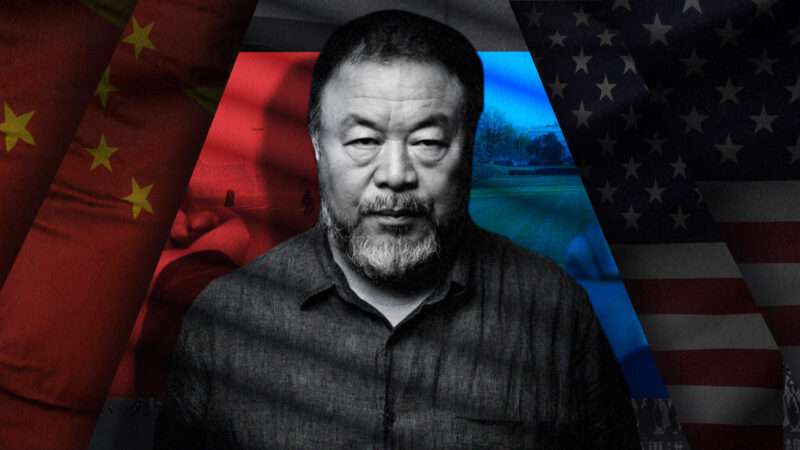
On the morning of April 3, 2011, the renowned artist Ai Weiwei was picked up by Chinese police at an airport in Beijing. Later that day, he found himself in the back of a van surrounded by security officials, wearing a black hood. They drove him to a secret detention facility where he was interrogated and monitored. It was here that Ai began to think of his young son, wondering when he would see him again.
"I was thinking I would be in that position for next 10 or 13 years," Ai told Reason. "And I realized, if there is a chance, I would write down [my memories] so I can pass them to my son."
The resulting book, 1000 Years of Joys and Sorrows, tells the story of his 81-day detention, his repeated struggles with the Chinese Communist Party, and of his father, the famed poet Ai Qing, who was severely punished during China's Cultural Revolution.
"He was heavily punished with about half a million intellectuals," Ai explains. "They relocated us from the capital to the most remote province….That experience gave me an early and very intimate relation to politics."
Growing up in exile, watching his father struggle, profoundly affected Ai's views on human rights, individuality, and freedom of expression. Views that repeatedly put him at odds with Beijing. But, as Ai states in his book, China is not alone in curbing speech.
"Ideological cleansing," he writes, "exists not only under totalitarian regimes—it is also present, in a different form, in liberal Western democracies. Under the influence of politically correct extremism, individual thought and expression are too often curbed and too often replaced by empty political slogans. It is not hard to find examples today of people saying and doing things they don't believe in, simply to fall in line with the prevailing narrative and make a superficial public statement."
Produced by Meredith Bragg
Music: "Jericho at Dusk," by Alon Peretz, via Artlist; "Om Karam," by Yotam Agam, via Artist
Photos: Jin Lei / Xinhua News Agency/Newscom; Michael Melia / Avalon/Newscom; Teresa Nunes/ZUMAPRESS/Newscom; Pedro Fiuza/ZUMAPRESS/Newscom; Aaron Chown/ZUMA Press/Newscom; Beowulf Sheehan/ZUMA Press/Newscom; Stephen Shaver/Ropi/ZUMA Press/Newscom; Britta Pedersen/dpa/picture-alliance/
The post Artist Ai Weiwei Warns of Chinese and American Authoritarianism appeared first on Reason.com.







